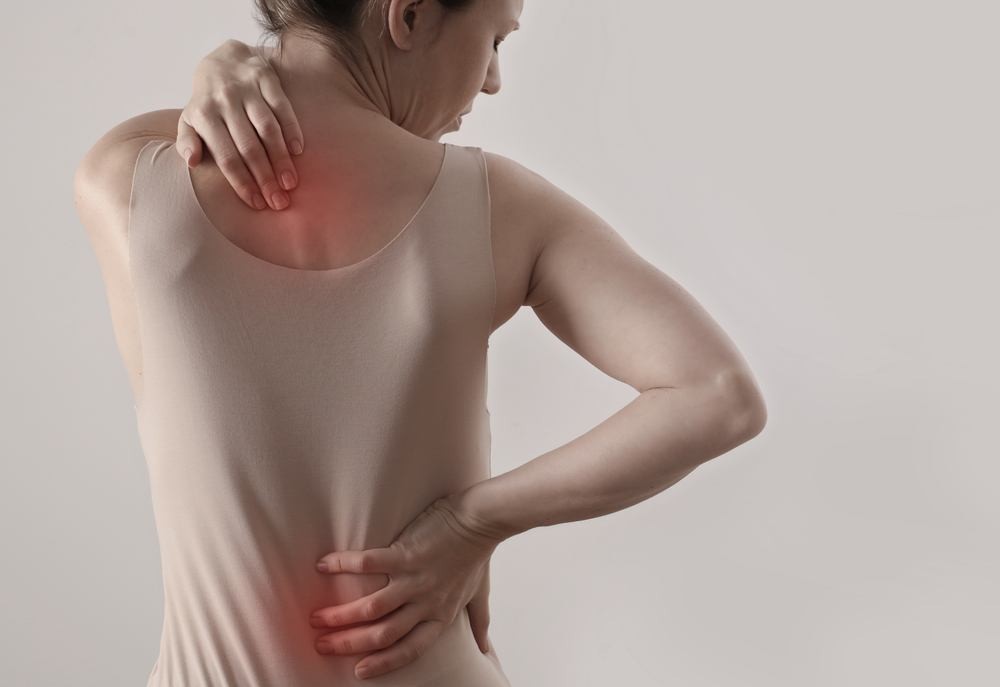 Back pain after a car accident is not uncommon, though some car accident injuries can be more serious than others. Injuries to the spinal cord should always be taken very seriously and require medical attention as soon as possible. Even delaying treatment by a few minutes can have a lasting impact on your health and leave you with long-term consequences. If you suffer a car accident injury and experience pain in your neck or back and around your spine, then you want to see a doctor as soon as possible. If paramedics help you at the scene and suspect you have suffered a spinal cord injury, they may transport you to the hospital for emergency medical care. After getting checked out at the emergency room, you will want to schedule follow-up treatment and appointments with a spine doctor who specializes in car accident injuries. Here’s everything you need to know about treating spinal cord injuries after a car accident.
Back pain after a car accident is not uncommon, though some car accident injuries can be more serious than others. Injuries to the spinal cord should always be taken very seriously and require medical attention as soon as possible. Even delaying treatment by a few minutes can have a lasting impact on your health and leave you with long-term consequences. If you suffer a car accident injury and experience pain in your neck or back and around your spine, then you want to see a doctor as soon as possible. If paramedics help you at the scene and suspect you have suffered a spinal cord injury, they may transport you to the hospital for emergency medical care. After getting checked out at the emergency room, you will want to schedule follow-up treatment and appointments with a spine doctor who specializes in car accident injuries. Here’s everything you need to know about treating spinal cord injuries after a car accident.
Types of Spinal Injuries from a Car Accident
 Damage to your spinal cord can range from mild to severe depending on the type and location of the injury. The spinal cord actually refers to the column of nerve tissue, and it is covered in layers of protective tissue known as membranes. The spinal column runs through the center of your vertebrae, or backbones, that make up your spine. Your spinal cord connects your brain to the central and peripheral nervous systems. All the nerves in your body send and receive signals that pass through the spinal column, so any injury to this area can negatively impact your healthy functioning. These are seven examples of spinal injuries from a car accident.
Damage to your spinal cord can range from mild to severe depending on the type and location of the injury. The spinal cord actually refers to the column of nerve tissue, and it is covered in layers of protective tissue known as membranes. The spinal column runs through the center of your vertebrae, or backbones, that make up your spine. Your spinal cord connects your brain to the central and peripheral nervous systems. All the nerves in your body send and receive signals that pass through the spinal column, so any injury to this area can negatively impact your healthy functioning. These are seven examples of spinal injuries from a car accident.
Whiplash
Whiplash is one of the most common car accident injuries. The force of impact can cause your head and neck to jolt forward and backward violently. This can strain neck muscles as they stretch outside their normal limits. Whiplash can also impact the spine in your neck and upper back, too. This type of car accident injury can also injure bones in your spine, spinal discs that separate each vertebra, and other nearby soft tissues and nerves. The extreme stress and pressure on your spine because of a whiplash injury can leave you feeling pain, tenderness, and stiffness when you try to turn your head.
Herniated Disc
A herniated disc refers to an injury that impacts spinal discs in between vertebrae. Each spinal disc has a tough outer shell that protects a soft, gel-like center. These spinal discs provide cushion and support to your spine and shock absorption for regular, everyday movements. Too much pressure or sudden force on spinal discs during a car accident can lead to a tear in the outer shell. A tear will allow for the inside of a spinal disc to slip out and aggravate nearby nerves and other soft tissues.
Pinched Nerve
A pinched nerve refers to any time a nerve becomes compressed or aggravated. A herniated disc could put pressure on a nearby nerve, leading to a pinched nerve. You could also experience a pinched nerve from swelling and inflammation in your muscles and other soft tissues after a whiplash injury. A pinched nerve commonly occurs alongside other injuries because the body has so many nerves that support various movements and functions. Damage to a nerve can cause a shooting, stabbing pain that radiates into different parts of the body. For example, a pinched nerve in your neck could send pain, tingling, and numbness into your shoulder, arm, and hand.
Spinal Fracture
A fracture is the medical term for what is more commonly known as a broken bone. Too much pressure or a sudden blow to the spine can result in a spinal fracture. If you suffer a spinal fracture, then one of the vertebrae in your spine may buckle under the force or pressure, known as a compression fracture. A severe trauma like a car accident could also cause a burst fracture, where a vertebra becomes crushed by the extreme pressure. Some spinal fractures can be more severe than others. For example, a stable fracture may not result in spinal deformity or nerve problems, but an unstable fracture may make it difficult or impossible for your spine to bear the weight of your body.
Spinal Stenosis
Spinal stenosis refers to the narrowing of the space inside your backbone, which can put too much pressure on the spinal cord and nerves that run through it. Spinal stenosis most commonly occurs in the lower back, also known as the lumbar spine. This type of structural injury can occur when an overwhelming amount of pressure compresses the spinal column. A spinal stenosis injury after a car accident can cause pain, tingling, numbness, and even result in paralysis.
Spinal Cord Damage
Any damage to the spinal cord itself, that tough column of nerve tissue, can impact your sensations or movements. Tears, bruising, or overstretching of the spinal cord can result in severe symptoms, like partial or full paralysis. The severity of spinal cord damage will depend on where the injury occurred. In many cases, tearing, nicking, or bruising of the spinal cord could result in you becoming permanently paralyzed below the injury site.
Treatment Options for Spinal Injuries
 If you suffered a spinal cord injury in a car accident, you might not notice symptoms immediately. It can take hours or even days for symptoms to fully set in as you process such a traumatic event. The type and severity of your injury will also impact what type of symptoms you experience and when they show up. Any time you suspect an injury to the spine, head, neck, or back, you should always see a doctor as soon as possible. The doctor will run emergency diagnostic imaging tests like an X-ray or MRI to assess you for a potential spinal cord injury or another type of neurological injury. Here are examples of some treatment options for spinal injuries, though your specific treatment would depend entirely on the type and severity of your spinal injury.
If you suffered a spinal cord injury in a car accident, you might not notice symptoms immediately. It can take hours or even days for symptoms to fully set in as you process such a traumatic event. The type and severity of your injury will also impact what type of symptoms you experience and when they show up. Any time you suspect an injury to the spine, head, neck, or back, you should always see a doctor as soon as possible. The doctor will run emergency diagnostic imaging tests like an X-ray or MRI to assess you for a potential spinal cord injury or another type of neurological injury. Here are examples of some treatment options for spinal injuries, though your specific treatment would depend entirely on the type and severity of your spinal injury.
Immobilization
The first thing paramedics or your doctor may do is to immobilize the area until you can get a thorough physical exam. If you are concerned about a potential spinal cord injury immediately after a car accident, or if you can’t feel your arms or legs, try not to move your body at all until help arrives. Do not try to turn your head or shift your upper body until paramedics can assess you for injuries and immobilize your head, neck, and spine as needed. It is always better to be safe than sorry when it comes to spine injuries, and if you move a certain way, it could make your injury worse, and you may even risk paralysis.
Medications
For mild to moderate spine injuries after a car accident, you can talk to your doctor about over-the-counter medications to help manage your pain and discomfort. Certain anti-inflammatory medications may also help reduce swelling and inflammation that develops after a car accident and can make your pain worse. However, it is important to know that medications do not address the source of your pain; they only temporarily relieve your symptoms. If you do take medications, you also want to pair that with treatment options approved by your doctor.
Chiropractic Care
A chiropractor who specializes in car accident injuries may assist you in recovering from a spine injury like whiplash, a herniated disc, or a pinched nerve. Sometimes, the intense pressure on your body from the car accident can cause your bones and joints to come out of proper alignment. A chiropractor restores misalignments in the spine and joints with chiropractic adjustments and only uses natural, hands-on, and drug-free approaches to treating your injuries.
Physical Therapy
If you experience weakness or paralysis because of a spinal injury, you may see a physical therapist to regain your strength and learn more about your mobility impairments. A physical therapist will develop a personalized plan of care that addresses your specific injuries, symptoms, and goals for treatment. Physical therapy typically incorporates stretches and exercises into your recovery and rehabilitation, which lets you take an active role in strengthening your muscles and improving your range of motion after an injury.
Surgery
In some cases, surgery may be necessary to address a serious car accident injury that impacts your spine. If you suffer a spinal fracture, then you may need surgery to remove any bone fragments. Surgery may also be necessary for addressing a severe herniated disc or to stabilize the spine after a severe injury.
Visit your Atlanta spine doctor at AICA Orthopedics to learn more about how our team can help you. With locations all across metro Atlanta, we have a team of doctors at each location that work together and provide you with comprehensive care. We will support you through recovery and rehabilitation from a spinal cord injury after a car accident.
